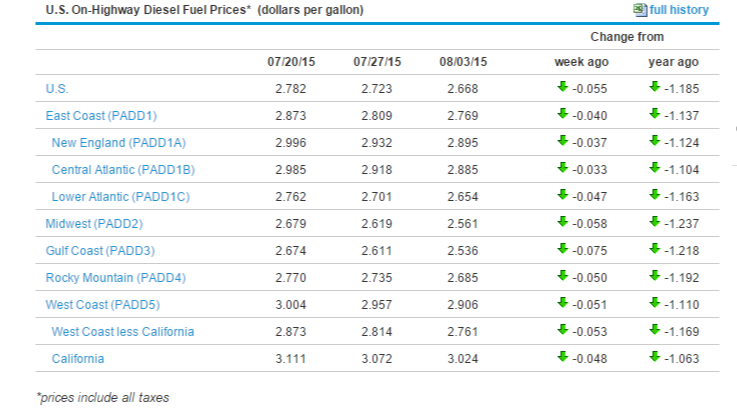Fuel Efficient Technology Will Reduce Emissions
On June 19th, the Environmental Protection Agency proposed new limits on greenhouse gases from heavy-duty trucks.
According to the EPA, the new regulations would cut 1 billion metric tons of greenhouse gases. Heavy-duty trucks manufactured from 2021 to 2027 will have to become 24 percent more fuel efficient, a requirement the EPA says will create new jobs, reduce the cost of freight, and clean up the air. Tractor trailers for 18-wheelers will also have to meet fuel standards for the first time.
Heavy-duty trucks only get around 6 miles to the gallon at this time on average. While the cost to ensure fuel efficient heavy-duty trucks could reach $10,000-$12,000 per truck, the EPA insist that the fuel savings will pay for itself in 2 years. But what about the short-term cost? Many drivers don’t have $12K laying around and what about fleet owners and companies that could top a few hundred thousand?
The Obama Administration has been an ally of the EPA whom has passed more regulations in the past 7 years than any other previous span in that time frame. Heavy-duty trucks consume nearly 3 billion barrels of fuel a year. Fuel is the greatest expense to fleets. While drivers and companies will surely save money in the long run, the short-term cost could be difficult to an already stressed industry.
Unlike a percentage of the EPA’s other rules – on power plant emissions, most notably – the trucking industry is not united against the move. “Fuel is an enormous expense for our industry – and carbon emissions carry an enormous cost for our planet,” Bill Graves, the American Trucking Association’s President and CEO said in a statement. “That’s why our industry supported the Obama Administration’s historic first round of greenhouse gas and fuel efficiency standards for medium and large trucks and why we support the aims of this second round of standards.” This second round is aimed at heavy-duty trucks.
During 2014, the trucking industry spent around $150 billion dollars on fuel.However, a number of fleets are already establishing this technology. Fleets and owners know they could save big money money by improving fuel efficiency in semi trucks. The race is on to become more fuel efficient but the government will likely have the last call on this matter.
“The technology already exist,” Truckers Logic CMO Richard Hale tells us. “The EPA may fuel the fire per say, but fleets all over the country are already using some of this technology. If a fleet can save $10 million dollars in fuel, they will. They’ll find a way.”
Imagine what some of the largest fleets in the world could save on fuel with fuel efficient technology. FedEx alone would save $550 million dollars a year, UPS $450 million dollars a year. Waste Management estimates that it could save $1 billion dollars per year. “Trust me, there’s a lot of hard working men and women behind the scenes improving this technology,” Hale added. “In a few years, we’ll be there, with or without the EPA.“









